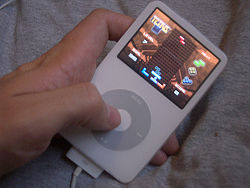New research from Geisinger PTSD expert Dr. Joseph Boscarino sheds light on what factors may predispose someone to posttraumatic stress. In a recently published study, Dr. Boscarino concludes that low self esteem, negative life events and lack of a support network greatly increase the likelihood of PTSD [continue reading…]
PTSD
 The BBC reports on how playing the computer puzzle game Tetris can help reduce the effects of traumatic stress.
The BBC reports on how playing the computer puzzle game Tetris can help reduce the effects of traumatic stress.
Volunteers were exposed to distressing images, with some given the game to play 30 minutes later, the PLoS One journal reported.
Players had fewer “flashbacks”, perhaps because it helped disrupt the laying down of memories, said the scientists.
It is hoped the study could aid the development of new strategies for minimising the impact of trauma. Link to continue reading
Source: BBC
Emily A. Holmes, Ella L. James, Thomas Coode-Bate, Catherine Deeprose (2009). Can Playing the Computer Game “Tetris” Reduce the Build-Up of Flashbacks for Trauma? A Proposal from Cognitive Science. PLoS ONE, 4 (1) DOI: 10.1371/journal.pone.0004153 (open access).
Image Credit: Wikemedia Commons
Scientists have devised a way of eradicating bad memories in a study that raises the prospect of treating people suffering from post-traumatic stress disorder. New and old memories have been selectively and safely removed from mice by scientists. [continue reading…]
The University of Queensland have discovered a new way to explain how emotional events can sometimes lead to disturbing long term memories.
In evolutionary terms, the brain’s ability to remember a fear or trauma response has been crucial to our long term survival.
However, in the modern world, when a similar type of fear response is triggered by a traumatic event such as being in combat; being exposed to abuse or being involved a major car accident, we do not want to repeatedly re-experience the episode, in vivid detail, for the rest of our lives. [continue reading…]

